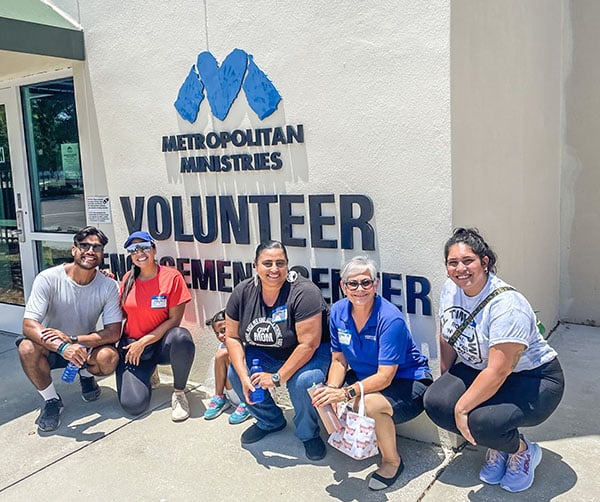Health Equity Training Helps Moffitt Provide Quality Care

A total of 69 Moffitt Cancer Center team members from 55 different departments have graduated from the Health Equity Train-the-Trainer program, a voluntary program designed to improve health equity across Florida.
The program is designed to educate health care professionals about health equity issues and strategies to ensure families and community members have the access and opportunities to attain their full health potential, regardless of any environmental, economic, or social circumstances.
“In addition to undergoing cancer treatment, some patients may be facing challenges with obtaining social support, transportation, finances, ability to afford care or treatment plans, etc.,” said Amanda Rivera, senior diversity and inclusion specialist at Moffitt. “Furthering our understanding of the possible challenges our patients face is critical in providing quality and empathic care, which aligns with our mission here at Moffitt Cancer Center.”
A $2.5 million grant from the Florida Blue Foundation finances the program, which also trains professionals from Orlando Health and United Way of Broward County. A total of 400 have gone through the program. Moffitt has trained 157 people, which includes 69 who are Moffitt employees.
“This program strengthened the idea for me of the importance of creating an inclusive and patient-centered care environment where individuals feel respected and valued,” said Isis Lamphier, Moffitt’s manager of infection prevention.
That perspective is particularly important in her field, Lamphier said.
“Infectious diseases can have a disproportionate impact on vulnerable and marginalized populations, leading to significant disparities in infection rates and outcomes. It is imperative that when reviewing infections, we also take into consideration the demographics of our patients and their social determinants of health,” she said.
Rivera said participants in the program:
- Learn about the importance of engaging with language services and the influence of culture on health and health decisions.
- Discuss how to leverage community partnerships and create a culture of equity for staff and patients alike.
- Complete a "Health Equity Capstone Project” to identify a health disparity and create an innovative solution. Capstone projects have included: Understanding Autism Spectrum Disorder and Cancer; Increasing Patient Library Accessibility; and Improving Clinician Communication, Humility, Cultural Competence and more.
“The most valuable thing I learned from the Health Equity Train-the-Trainer program was the history of medical/scientific treatment of minority and underrepresented populations,” said Amber Skinner, Adolescent and Young Adult (AYA) program administrator. “There was a wealth of knowledge shared and it really allowed me to understand the “why” behind some of the social determinants of health for specific populations.”
It also has led to some innovative new approaches.
“The training has encouraged me to explore opportunities of empowering underrepresented patient voices through the creation of online AYA patient panels,” Skinner said. “We recently partnered with two internal programs to host an AYA LGBTQ+ patient experience panel to learn how to improve the cancer journey experience from patients who identify within this population.”
Laura Bosselman added, “As manager of Patient Experience Services at Moffitt McKinley Hospital, I am in a position to assist patients that need transportation arranged in instances of service recovery. This training helped me understand that offering transportation services to those in need helps make a difference to patients experiencing a lack of equity in accessing our services.”
